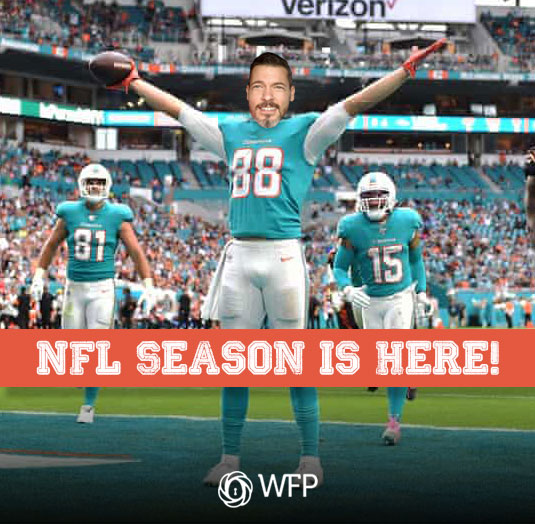For some people, NFL season is a cause for celebration. People love football; they have since the game became a national pastime decades ago. Football season is a regular staple of American life. Watching the game on Sundays is as much of a hobby as anything else is.

Whoever you support or root against is your business, but there’s something we can learn from NFL quarterbacks: how to be covered. Who is your offensive line? What protects you against a tackle?
In this article, we’ll discuss ways to cover yourself against a will challenge. The best offense is a good defense, and executing your will properly will provide you with almost all the protection you need.
What is a Last Will and Testament?
Before we get into will challenges, we should talk about what exactly a will is. A last will and testament is a legally-binding document. It expresses your wishes on how you want your property (savings, home, car, possessions, etc.) distributed after you die. It also delineates who you want to manage the property and execute the will until the final distribution.
The will can also perform other functions as well, such as appoint guardians for your minor children. It is important that a will communicates your wishes clearly, precisely, and accurately. As with any legal document, there are rules attached to how a will must be formed and executed.
What Are the Rules?
Rules vary from state to state. In Florida, there are several requirements for the proper execution of a will. Bulleted below are must-haves for writing a will.
- Writing. Florida courts require that a will be written. There can be no nuncupative wills (oral declarations) or handwritten instructions without witness signatures (holographic wills). These non-written wills are not valid.
- Competence. A will must be made by someone who is competent. The Mad Hatter couldn’t write a will. Someone not of sound mind, or someone who is a non-emancipated minor under age eighteen, could not write a will.
- Terminology. As long as a will is executed according to the law, there aren’t any special phrases, language, or forms required to make the will valid.
- Signatures. This one shouldn’t come as a surprise. A will has to be signed by the testator, but the signature can be any letter, symbol, initials, or mark. As long as the person making the will intends that to be their signature, it counts.
- Witnesses. Witnesses have to sign the will in the presence of the person who made the will. They have to sign the will in the presence of each other. Anyone who is competent can be a witness, even if they’re a beneficiary in the will.
In Florida, a will can be revoked or amended, and it can also be contested. Wills are not allowed to have provisions banning people from contesting the will. These provisions are unenforceable. However, attempts to contest the will’s validity cannot take place before the testator dies.
What is a Will Challenge?
A will contest is an adversary proceeding brought during the probate of someone’s estate. The will contest challenges the will’s validity on some specific ground. There are a few grounds for contesting a will, but, first and foremost, only people with legal standing can contest a will. Anyone who is an “interested person” can file a will contest in Florida. “Interested persons” include creditors, beneficiaries, and heirs to the will.
There are three legal grounds on which someone can contest a will. First, they can claim there are irregularities in the execution of the will. Wills that don’t comply with the rules in the above section can be challenged on these grounds.
Second, a contester can claim the person who made the will was not of sound mind. This means they didn’t understand or have the capacity to understand what they were doing and/or the practical effect of the will when they made it. Lack of capacity must be proven at the time the testator made the will.
Third, someone can argue there was undue influence. The contester can say that they felt someone who substantially benefits from the at-issue will forced the testator to change the will and write it to benefit themselves.
These three legal grounds are the basis for will challenges in Florida. Though not always successful, they are time-consuming, expensive, and cause no small amount of family division.
How to Avoid a Will Challenge?
Unfortunately, there is no failsafe way to prevent people from contesting a will. However, if you follow all the rules to the letter and start early, the chances of those people succeeding are very low. Hiring an estate planning attorney to handle the will execution is a must.
The bottom line is that if you want something done right, hire a professional. Taking the DIY route via Legal Zoom or another website might be tempting, but it won’t pay off in the end. Avoid your will and wishes being questioned, and contact an estate planning attorney today.